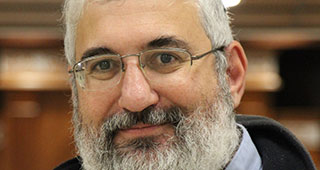Beit Midrash
- Sections
- Chemdat Yamim
- P'ninat Mishpat
Case: The plaintiff (=pl), a used car salesman, sold the defendant (=def) a car for 10,000 shekels in installments with a standard contract. An expert test-drove and inspected the car and recommended it for def over other cars. Pl told def that there had been an electrical problem that was professionally fixed. Def is experiencing several problems, the most important being that during the first 24 hours after rain, he is often unable to get the car to start. Due to this, def is refusing to replace the last 700-shekel check (the original had a mistake). Pl demands that def pay the final payment and points out the contract’s clause that pl checked the car and relinquishes the right to complain about flaws. Pl also says that the problem that needed fixing was the car’s shaking due to it not working on all cylinders; the present problem is a new one for which he is not responsible. Def claims that pl told him that the problem was an electrical one having to do with wetness, i.e., the present problem. Def does not want to nullify the sale but to reduce the price. In addition to the outstanding 700 shekels that he does not want to pay, he demands the return of another 700 shekels. Beit din spoke both to the person who sold the car to pl and to an expert on cars. According to their "testimony," it is difficult to know whether the present problem was pre-existing.

P'ninat Mishpat (803)
Various Rabbis
491 - Compensation for the Flaws of a Used Car – part I
492 - Compensation for the Flaws of a Used Car – part II
493 - Rescinding School Acceptance
Load More
Is the clause waiving claims of flaws valid if there were indeed serious flaws at the time of the sale? The Shulchan Aruch, Choshen Mishpat (332:7) rules, based on the Rambam, that a general statement that one waives the right to back out of a deal when the sales object is flawed is an invalid clause. However, the S’ma (332:16) and the Shach (332:4) rule that if the seller specified a certain flaw to be waived or states the value of the flaw and the actual flaw conforms to it, then the clause is valid.
In this case, def stated that pl told him that there was an electrical problem in the car that had to do with winter rain, which had been fixed. Pl knew that a winter had not passed since the repair, which would confirm that the repair had been successful. When knowing that this could be an issue, having an expert advise him, and signing an agreement to waive claims of flaws, this is considered waiving the rights at least in regard to such a known issue. He should have known that such a problem could have remained an issue.
One must realize that when he buys a used car, especially when it is cheaper than the list price, he is taking a risk that there may be serious problems. Had it been demonstrated that pl deceived def, then there is room for a claim despite the above. However, it was not demonstrated that this was the case here.
[Due to a couple of relatively minor issues, the amount of payment due was slightly reduced.]

P'ninat Mishpat: A Seller with Questionable Rights to the Property – part II
based on ruling 84062 of the Eretz Hemdah-Gazit Rabbinical Courts
Beit Din Eretz Hemda - Gazit | Cheshvan 5786

P'ninat Mishpat: Did Any Furniture Go to the Buyer? – part I
based on ruling 84093 of the Eretz Hemdah-Gazit Rabbinical Courts
Beit Din Eretz Hemda - Gazit | Kislev 5786

P'ninat Mishpat: A Used Car with a Tendency Toward Engine Problems
based on appeal ruling 84034 of the Eretz Hemdah-Gazit Rabbinical Courts
Beit Din Eretz Hemda - Gazit | Av 5785























